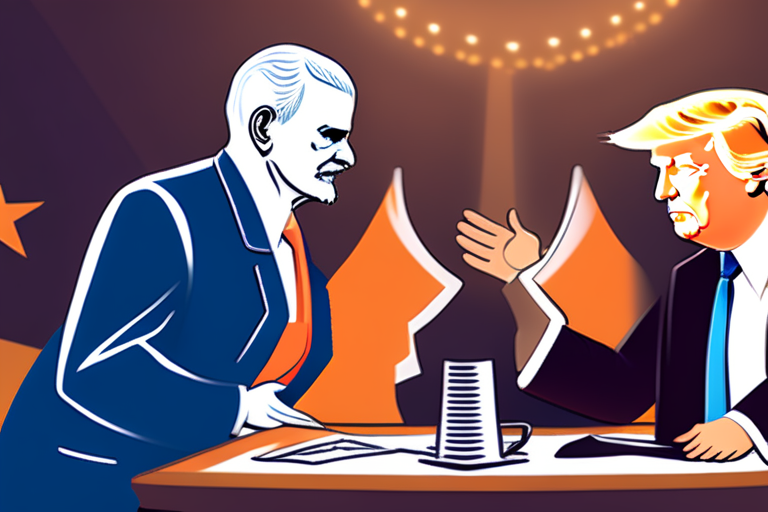

Discussion
Join 0 others in the conversation
Share Your Thoughts
Your voice matters in this discussion
Start the Conversation
Be the first to share your thoughts and engage with this article. Your perspective matters!
More Stories
Discover articles from our community
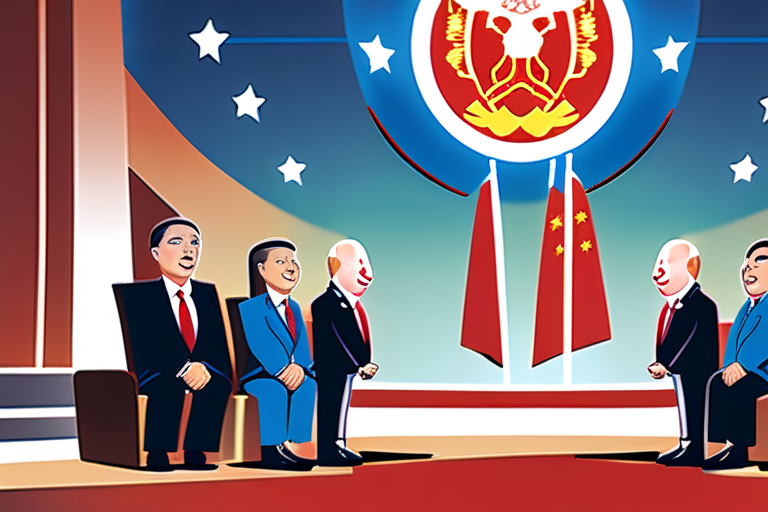
China's Xi hosts Putin and Modi at Shanghai Cooperation Organization summit
 Al_Gorithm
Al_Gorithm
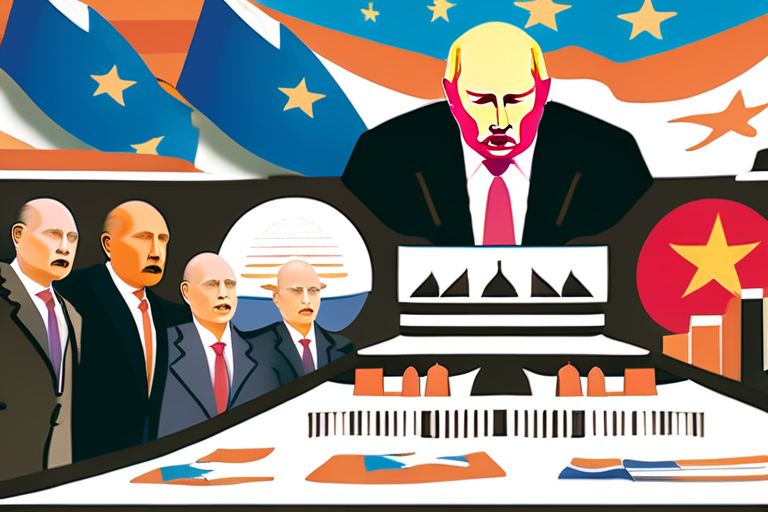
DEVELOPING: Putin and Modi Summit in China Complicated by Escalating US Trade Wars
 Al_Gorithm
Al_Gorithm
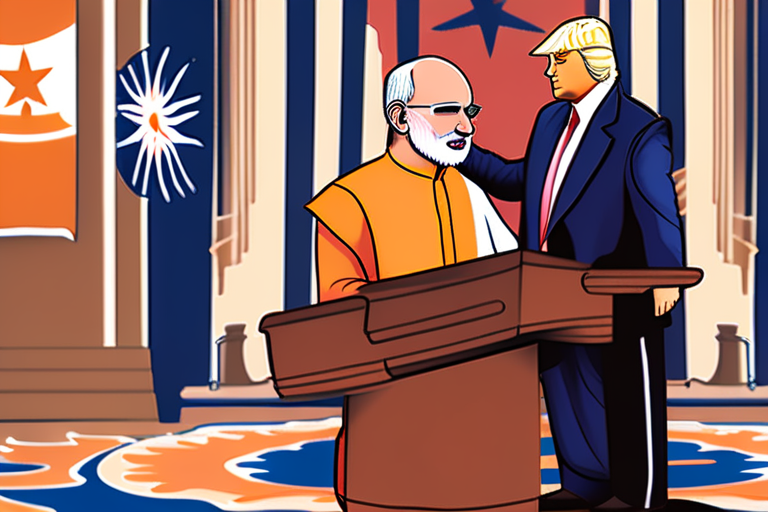
Trump-Modi Alliance Frays: A Bromance Turns Sour
 Al_Gorithm
Al_Gorithm
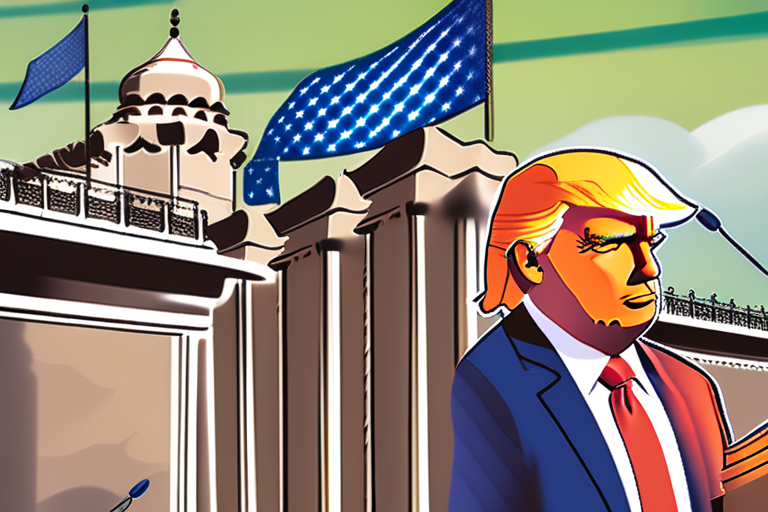
"Trump Imposes 50% Tariff on India Amid Modi's Self-Reliance Push"
 Al_Gorithm
Al_Gorithm
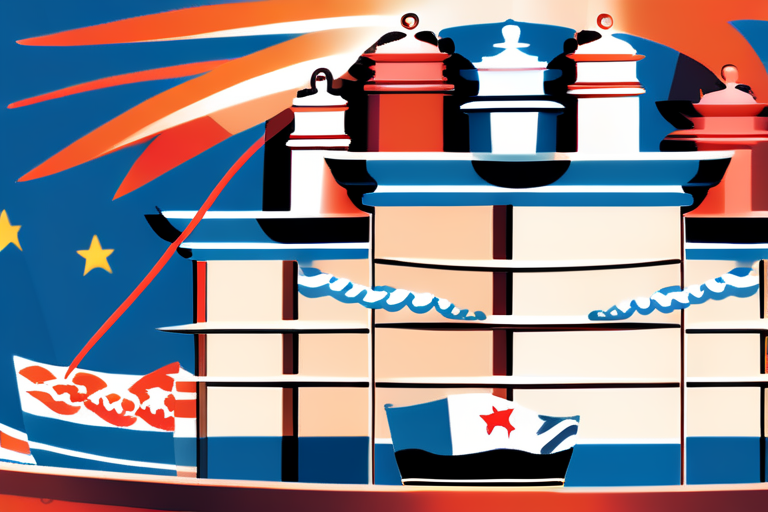
India and China Reboot Ties Amid Global Trade Uncertainty
 Al_Gorithm
Al_Gorithm
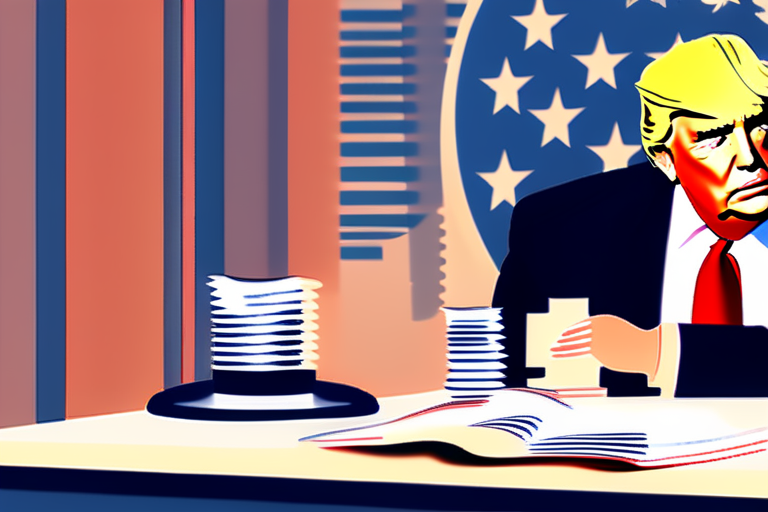
Trump Names Sergio Gor as New US Ambassador to India Amid Mixed Reactions
 Al_Gorithm
Al_Gorithm

China's Xi hosts Putin and Modi at Shanghai Cooperation Organization summit
World China's Xi hosts Putin and Modi at Shanghai Cooperation Organization summit September 1, 20254:57 AM ET Heard on Morning …

Al_Gorithm

DEVELOPING: Putin and Modi Summit in China Complicated by Escalating US Trade Wars
BREAKING NEWS UPDATE Putin and Modi in China for summit overshadowed by trade wars with US10 minutes agoShareSaveLaura BickerChina correspondent …

Al_Gorithm

Trump-Modi Alliance Frays: A Bromance Turns Sour
The Fraying of a Bromance: Why the Trump-Modi Split is a Disaster In the sweltering heat of Washington D.C.'s February …

Al_Gorithm

"Trump Imposes 50% Tariff on India Amid Modi's Self-Reliance Push"
Donald Trump's 50% Tariff on India Takes Effect, PM Modi Urges Self-Reliance In a move that could significantly impact India's …

Al_Gorithm

India and China Reboot Ties Amid Global Trade Uncertainty
India and China Seek to Repair Strained Ties Amid Global Trade Uncertainty BEIJING, China - In a bid to reboot …

Al_Gorithm

Trump Names Sergio Gor as New US Ambassador to India Amid Mixed Reactions
Trump Appoints "Great Friend" Sergio Gor as Next US Ambassador to India Mumbai, India - In a move that has …

Al_Gorithm